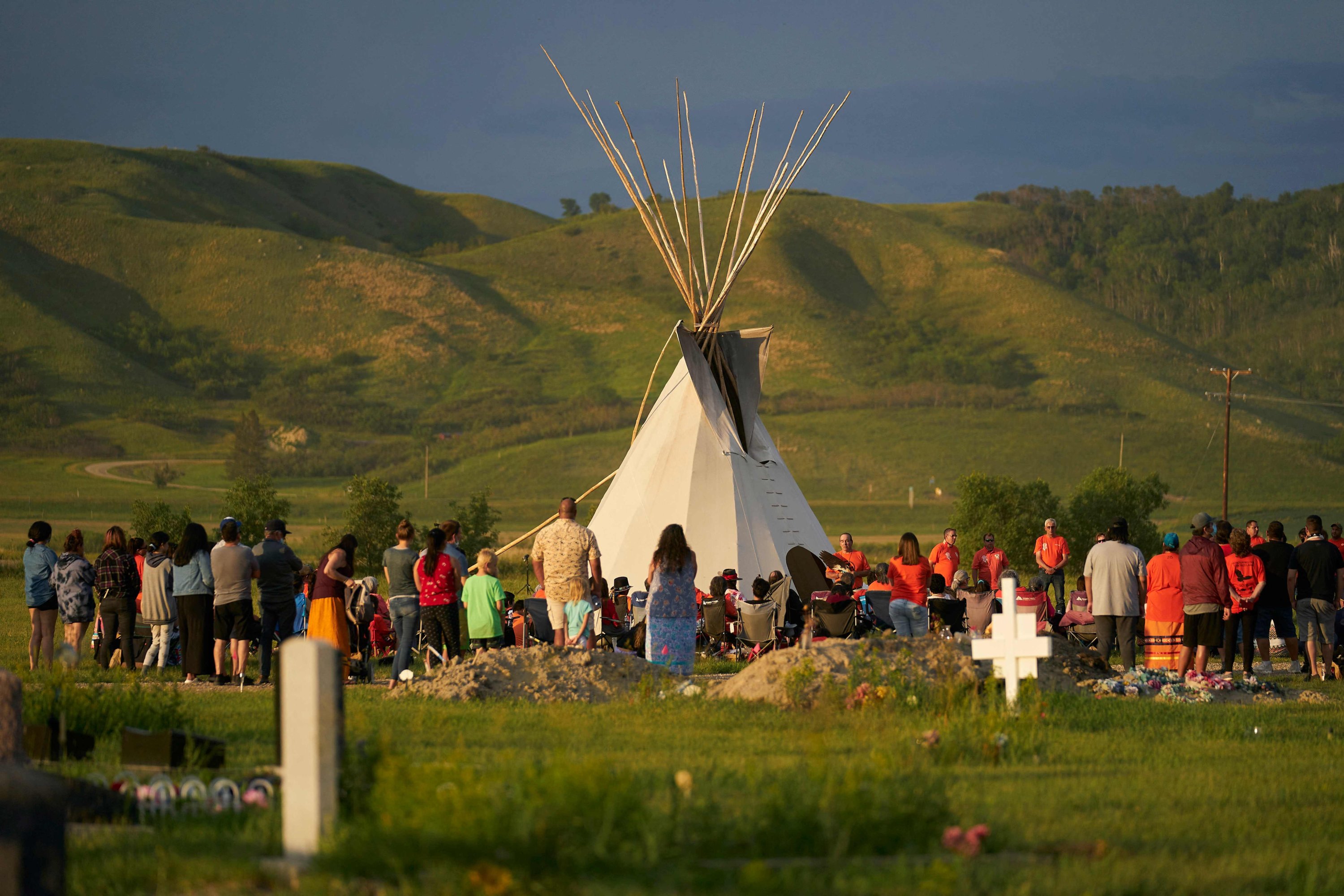
Hundreds of people gather for a vigil in a field where human remains were discovered in unmarked graves at the site of the former Marieval Indian Residential School on the Cowessess First Nation in Saskatchewan, Canada, June 26, 2021. /AFP
Hundreds of people gather for a vigil in a field where human remains were discovered in unmarked graves at the site of the former Marieval Indian Residential School on the Cowessess First Nation in Saskatchewan, Canada, June 26, 2021. /AFP
Another Canadian indigenous community announced Wednesday the discovery of the remains of 182 people in unmarked graves around a former indigenous residential school near Cranbrook in the British Columbia province of Canada.
The Aq'am community, a member of the Ktunaxa Nation located near the city of Cranbrook, used ground-penetrating radar to find the remains close to the former St. Eugene's Mission School, the Lower Kootenay Band said in a statement on Wednesday.
The indigenous school was operated by the Catholic Church from 1912 until the early 1970s. The building has since been converted into a resort and casino, with an adjacent golf course.
"It is believed that the remains of these 182 souls are from the member Bands of the Ktunaxa Nation, neighboring First Nations communities and the community of Aq'am," the band said in the statement.
The band said up to 100 of its members were forced to attend the school.
The finding followed the discovery of the estimated remains of 215 people at the site of the Kamloops Indian Residential School in British Columbia and an estimated 751 unmarked graves near a site of the Marieval Indian Residential School in Saskatchewan.
The community's leadership met residential school survivors in the community before announcing the discovery and referred them to support.
The band said it is in the early stages of learning about the report's findings and will provide more updates.
About 150,000 indigenous children attended residential schools. The schools were known for overcrowding, poor sanitation, unhealthy food and menial labor. Harsh punishment was given to students who spoke their native language or took part in traditional ceremonies.
Read more:
Canada's real 'genocide' yet to be revealed
Source(s): Xinhua News Agency

